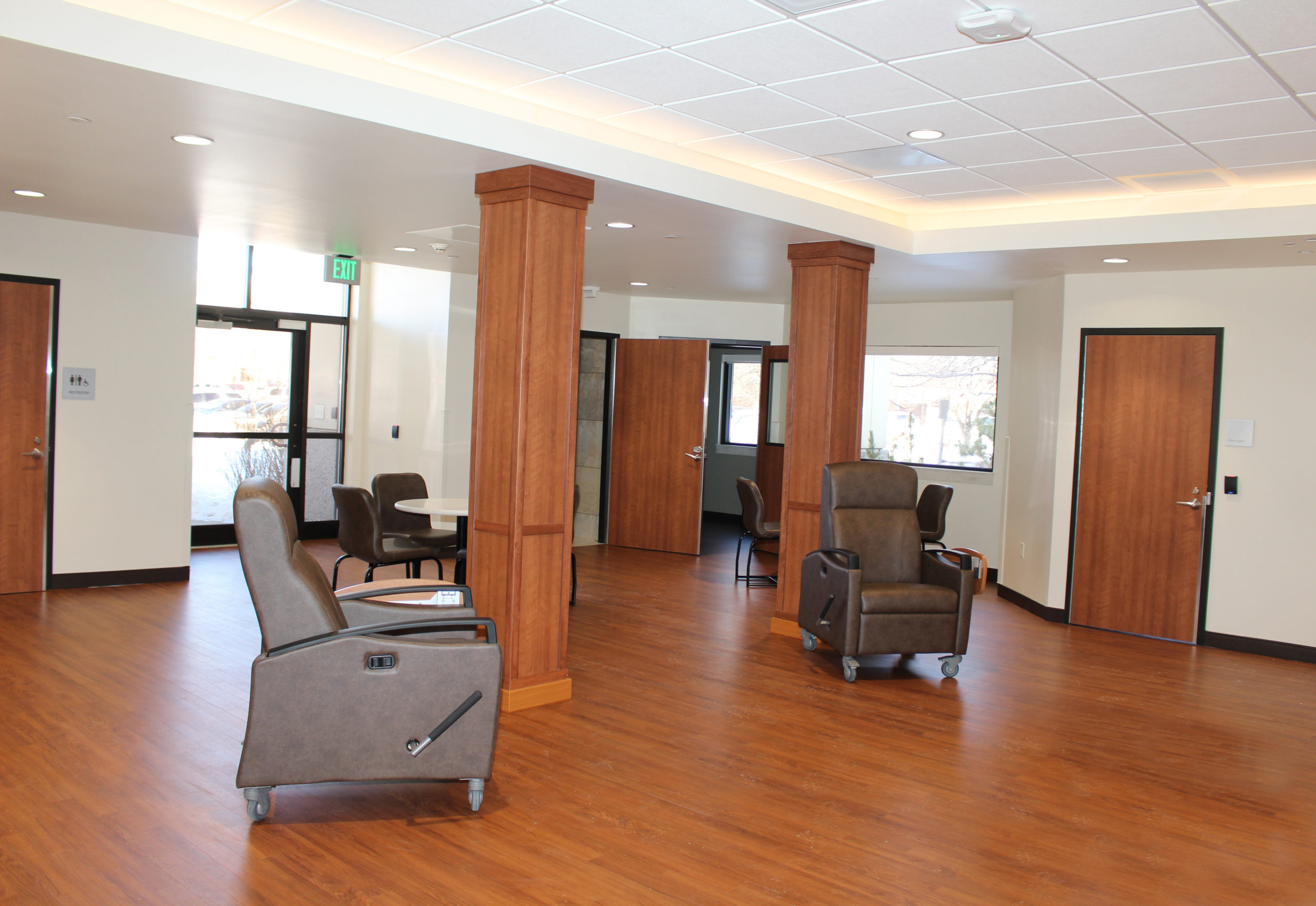
The innovative model will act as a template for advancing mental healthcare and alleviating emergency room overcrowding throughout the rural Upper Midwest.
The Billings Clinic Foundation and Dr. Eric Arzubi, Chair of the Psychiatry Department at Billings Clinic, recently developed a plan to improve emergency department throughput and revenues while addressing the growing need for quality mental healthcare at the hospital. With the help of a $782,271 grant from The Leona M. and Harry B. Helmsley Charitable Trust’s Rural Healthcare Program, Billings Clinic opened a Psychiatric Stabilization Unit (PSU) based on the well-respected Alameda Model on April 17, 2018. The unit will offer emergency psychiatric services in a safe and therapeutic environment.
Many hospital emergency departments are plagued with long patient wait times. This contributes to stress for patients and staff, as well as increases costs and potential harm. Timely intervention, specifically for patients in psychiatric crisis, improves overall patient care. Maintaining a separate space for these patients to receive the services they need, such as through a PSU, is considered good clinical practice. It improves the flow and quality of care in the emergency department and contributes to the overall health of a hospital.
“At Helmsley, we are committed to supporting access to healthcare across rural areas of the Upper Midwest. One way we do this is by collaborating with progressive partners like Billings Clinic, who are committed to finding and implementing innovative solutions to improve patient care,” said Walter Panzirer, a Helmsley Trustee. “Billings Clinic is one of a handful of health systems using the Alameda model. It is the first to take the model, which has proved successful in urban areas, and apply it to a hospital serving a large geographic area in a rural state.”
Large gaps in access to psychiatric healthcare in rural America often leave patients with untreated conditions. For many, this leads to episodes that require visiting an emergency room, where they often wait for care for hours or even days. Many of these patients are experiencing the worst moments of their lives, which can be exacerbated by the sometimes chaotic environment of an emergency setting. Moreover, psychiatric patients typically end up occupying beds needed to treat patients with physical emergencies.
Using the Alameda Model, also referred to as an emPATH (emergency Psychiatric Assessment, Treatment & Healing) Unit, psychiatric patients once medically cleared are directed to dedicated space with specially trained providers, away from the noise, hectic activity, flashing lights, and other norms of a traditional emergency care setting. Like many other medical emergencies, psychiatric emergencies can often be resolved in less than 24 hours when prompt, skilled care is available. This innovative intervention, designed to improve care for psychiatric patients, was developed by Dr. Scott Zeller, Chief of Psychiatric Emergency Services for the Alameda Health System in Oakland, California.
Compared to emergency departments, the emPATH setting is calmer, more home-like, and offers a supportive environment for patients in psychiatric crisis. This setting decreases patient agitation and reduces the need for coercive measures (like restraints). In the large, comfortable central room are recliners and stations where patients can access snacks and beverages. There are opportunities to read, watch TV, play board games, or visit privately with a therapist or counselor. The design is safer for patients and more cost effective than building a separate emergency room.
“Given our country’s mental health crisis, and given the challenges faced by patients in rural America, we have to stop thinking of psychiatry in traditional terms and start thinking outside the box. Because traditional models are not working,” said Dr. Arzubi. “The emPATH model offers a vastly improved patient experience which we believe will lead to improved treatment outcomes and become a model practice in rural areas across the nation.”
Now when patients present to Billings Clinic Emergency Department with mental health issues, they will be screened for acute physical problems and, if cleared, transferred to the Helmsley Psychiatric Stabilization Unit within 30 minutes. They will immediately consult with a licensed nurse and social worker. A psychiatrist will help to determine the cause of the episode and a course of treatment. Patients will then be connected with family and community services, where treatment and support continue once they leave – which will be possible within 24 hours. This efficient process provides the proper treatment for the patient, reserves the emergency room for those with physical trauma, and decreases admissions to the emergency department.
“We would not be able to develop this type of innovative unit without philanthropy,” said E. James Duncan, President of the Billings Clinic Foundation. “We serve patients from a large region with about 50% of them coming from outside of the immediate Billings area, some from vast distances. Our emergency room is very busy and finding ways to provide safer, more effective emergency behavioral and mental health care has been a huge part of our discussions. Bringing this type of unit to Billings Clinic has been a goal. There’s been a lot of community interest, not just from the Helmsley Charitable Trust, but we’ve had financial support from other organizations and businesses as well. People recognize this is a national problem.”
“Dr. Arzubi and the team at Billings Clinic are very forward thinking,” said Dr. Eric Kurtz, Helmsley Program Officer. “They continue to push the status quo to improve care across the region. As Helmsley supports their efforts to be true innovators and pioneers in the field, we hope this inspires other organizations to do the same. This is just the beginning of a broader vision to increase access to a comprehensive system of quality behavioral healthcare. All people in rural areas should be able to access these services when and where they need them.”
The Helmsley Psychiatric Stabilization Unit at Billings Clinic opened in April 2018 and it will be closely studied as a model for expansion to other rural hospitals in the Upper Midwest.